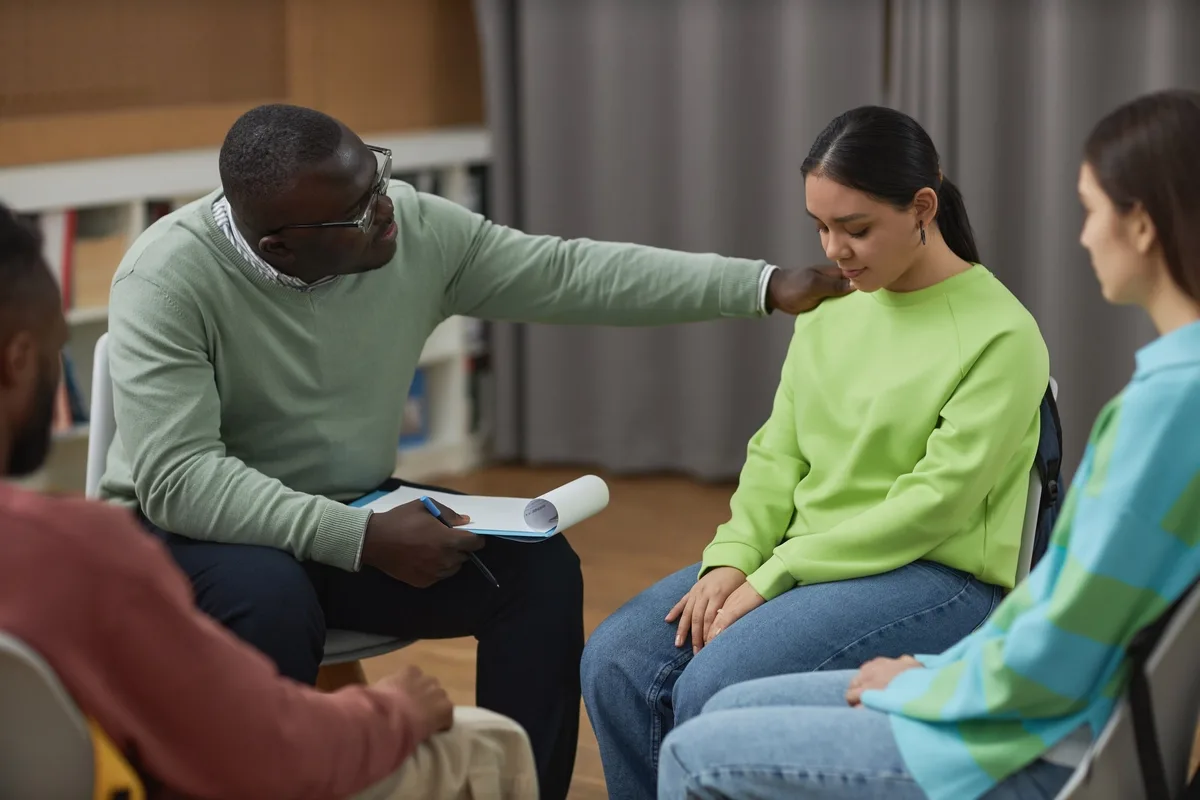24/7 Helpline:
(866) 899-221924/7 Helpline:
(866) 899-2219
Learn more about PTSD Treatment centers in Rawlings
PTSD Treatment in Other Cities

Other Insurance Options
Beacon

Oxford

Carleon

State Farm

Private insurance

PHCS Network

Choice Care Network

Providence

EmblemHealth

GEHA

United Health Care

Sutter

Meritain

UnitedHealth Group

Optima

Multiplan

Coventry Health Care

BHS | Behavioral Health Systems

Optum

WellCare Health Plans















